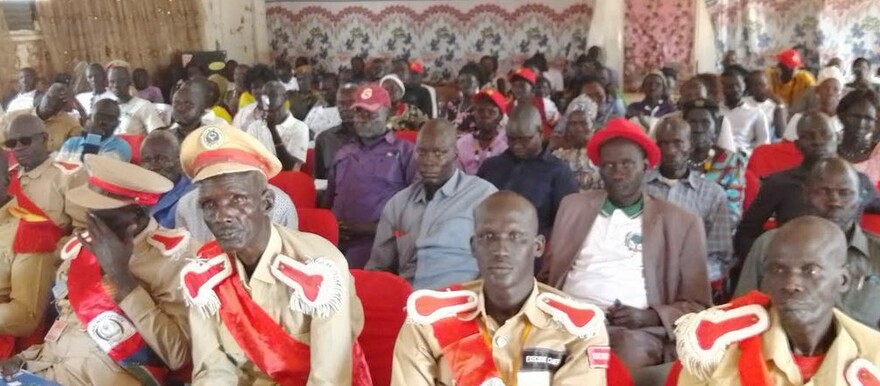The Warrap State local government ministry, United Nations mission in South Sudan (UNMISS), and International Office of Migration (IOM) on Monday organized a five-day workshop at the Warrap State Assemble Hall in Kuajok to review the Wathalel Customary Law.
The Wathalel Customary Law was established in 1928 during a conference held in Wathalel Town in the present Tonj South County by the Dinka sections of Tonj, Rumbek, Yirol, Wau, Aweil, and Gogrial.
It contains laws or articles that state that 21 cows are first to be paid during marriage or the elopement of girls, 31 cows for blood compensation, and 11 cows for adultery cases among others.
The review of the customary law aims to adjust how Dinka marriage, inheritance of properties, and how women share cattle when their daughters get married among others.
The workshop is being attended by 150 participants drawn from Gogrial West, Gogrial East, and Twic counties.
William Wol Mayom, the Warrap State minister of information, while addressing the participants, said the review of the Wathalel traditional laws will shape communities into a modern way of social cohesion.
“On behalf of Governor Kuol Muor Muor and my behalf, I would like to take this golden opportunity to appreciate partners like IOM and the Kong Koch Consortium for the logistical support that brought this great number of people to participate in the review of the customary law,” he said. “Article 5 of the constitution gives the state the right to call community representatives and review the traditional laws to meet the requirements of the current situation. Warrap State is committed to enhancing peace and this conference brought people together to discuss issues that alleviate communal conflict.”
Minister Wol added: “This is the second phase because the Greater Tonj Community put their inputs during the Tonj South conference and now Greater Gogrial, comprised of three counties, have the opportunity to review and own the law.”
On his part, Salomo Paulasaari, the IOM project officer, said customary law is the key to upholding peace and unity among the Dinka tribes and other non-Dinka who inhabit Warrap State.
“We are in Kuajok to work on the customary law review because there are other tribes in Warrap that need to be included in the law. We brought about 155 different community representative from different parts of Greater Gogrial to get their recommendations on the law. We did the same last month in the Greater Tonj Peace Conference which was held in Tonj South town,” he said. “This customary law review is important to have the people share opinions because it was written 50 years ago and should be revised again because essential issues like marriage, divorce, and property inheritance are critical when considering women in the social context of Dinka cultures, including murder, rape and gender-based violence in the communities.”
Some of the participants who spoke to Radio Tamazuj said the workshop is a great opportunity to update the laws.
Achol Abraham Kuol, a legislator representing Gogrial West County’s constituency number 15, said the workshop presents a chance for women to share their views on traditional laws and also demand their fair share of bride wealth when their daughters get married.
“We are reviewing Wathalel Customary Law which was established in 1928. There is now technological advancement, the population has increased and some people have wealth. Also, the old law was for the four states in Bahr el Ghazal Region but we are now an independent state and have the right to amend some laws and make them compatible with national laws,” she argued. “We have more cattle compared to when the law was made and now there is money. The law should also be reviewed because there women had no right to inherit their husband’s property when he died.”
Victor Wek, another participant, said the first day of the workshop tackled traditional marriage and how widows should behave in the community when their husbands died.
“Chiefs, women, youth, commissioners, and intellectuals from Greater Gogrial came here to discuss how marriage should be regulated,” he stated. “We also discussed and presented that widows should not be forced to be inherited and married by a particular relative of the deceased husband but be given the freedom to choose from his close relatives to care for the children. However, a widow cannot choose a man outside of her deceased husband’s family or clan.”




